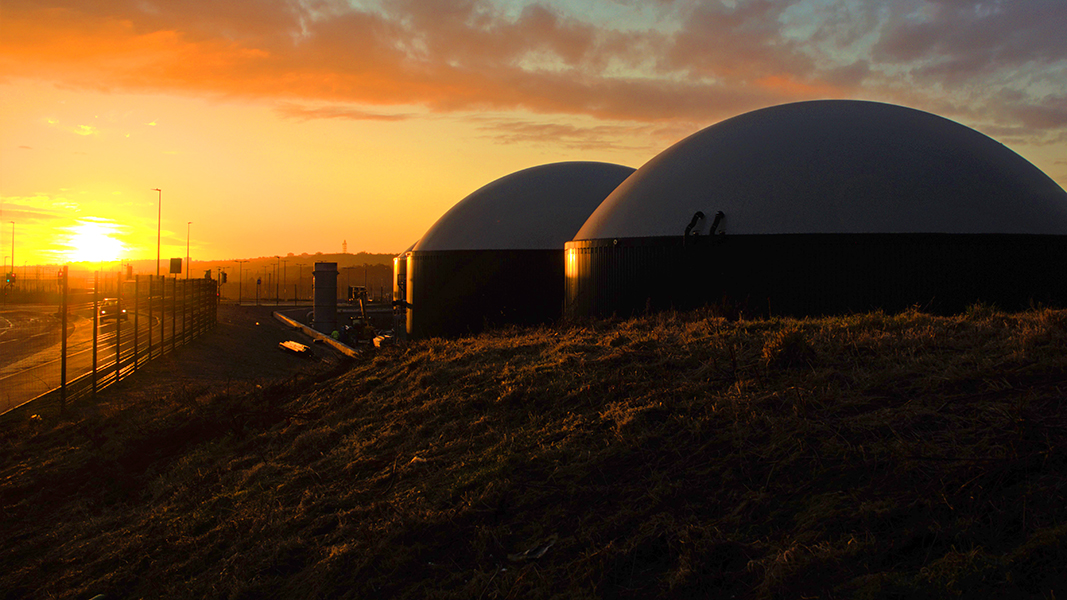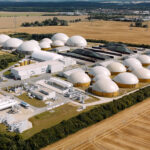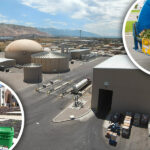Top: Anaerobic digester in Aberdeen, Scotland. Photo by Robin Szmidt, Target Renewables, Ltd.
At the World Biogas Summit in Birmingham, United Kingdom in June 2022, organized by the World Biogas Association, the message was clear when it came to the importance of biogas as a replacement fuel for natural gas in the European Union (EU) following Russia’s invasion of Ukraine in February 2022. “EU consumption of natural gas is approximately 13.9 billion MMBTU/year, or the equivalent energy content of almost 100 billion gallons of petroleum,” notes a summary of the discussion at the Summit by Kyle Jeremiah, Communications & Community Engagement manager at Energy Vision. “Of this total, nearly half (6.5 billion MMBTU) was coming from Russia, leaving a huge supply gap to overcome in the short to medium term. Since the invasion of Ukraine in February, the EU has scrambled to develop plans to overcome this deficit. One goal under the REPowerEU plan is to boost domestic biomethane production to 1.3 billion MMBTU/year by 2030 by generating fuel from a significant portion of the 2.3 billion tons of organic wastes in Europe via anaerobic digestion — a 10-fold increase from current production of renewable natural gas (RNG).”
Rick Duke, the U.S. Deputy Special Envoy for Climate, singled out the production and use of biogas as a critical strategy to reduce methane emissions and prevent the most disastrous impacts of climate change during his presentation at the Summit. Duke estimated that if all organic waste were converted into biogas and upgraded to RNG, it could substitute for more than a quarter of current natural gas consumption, writes Jeremiah, adding that while Duke acknowledged these were “aspirational figures,” he said that even capturing 10% of this potential would support energy and climate security goals. Based on current estimates, the world is only tapping into about 2% of the total potential for anaerobic digestion.
Jeremiah ended his summary of the Summit in Energy Vision’s November newsletter by highlighting the significant importance of utilizing the solid and liquid digestate produced by anaerobic digestion as a replacement for inorganic fertilizer. “Digestate … can replace about 6% of inorganic fertilizer currently in use, especially at a time when Russia’s invasion of Ukraine has led to serious fertilizer shortages and food scarcity worldwide.”













